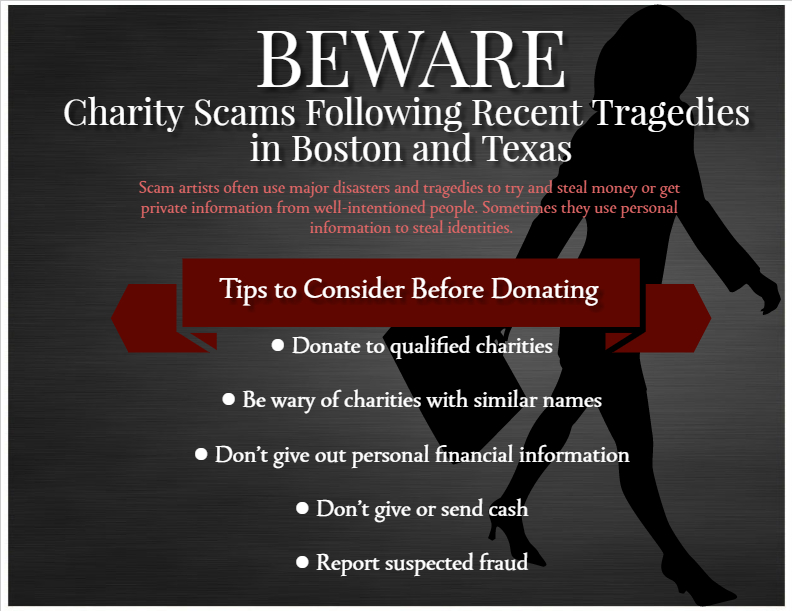Recent Articles
Beware of Charity Scams Following Recent Tragedies in Boston and Texas
- Details
- Published: 08 September 2017 08 September 2017

Scam artists often use major disasters and tragedies to try and steal money or get private information from well-intentioned people. Sometimes they use personal information to steal identities.
Their schemes include contacting people by phone, social media, email or in person and pretending to be from a charity that helps disaster victims. For example, the scammers may use emails to steer you to a website to get your money, which they claim will benefit the tragedy victims. This website may even look like a legitimate charity’s website or use a name similar to a legitimate charity.
Below are a few tips the IRS has for you to consider before donating to charities, including those supporting the victims of the Boston Marathon and Texas fertilizer plant tragedies:
- Donate to qualified charities. Use the Exempt Organizations Select Check tool at IRS.gov to find qualified charities. Only donations to qualified charitable organizations are tax-deductible. You can also find legitimate charities on the Federal Emergency Management Agency Web site at fema.gov.
- Be wary of charities with similar names. Some phony charities use names that are similar to familiar or nationally known organizations. They may use names or websites that sound or look like those of legitimate organizations.
- Don’t give out personal financial information. Do not give your Social Security number, credit card and bank account numbers or passwords to anyone who solicits a contribution from you. Scam artists use this information to steal your identity and money.
- Don’t give or send cash. For security and tax record purposes, contribute by check, credit card or another way that provides documentation of the donation.
- Report suspected fraud. If you suspect tax or charity-related fraud, visit IRS.gov and perform a search using the keywords, Report Phishing.
More information about tax scams and schemes is available at IRS.gov using the keywords, scams and schemes.





